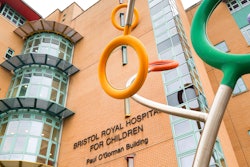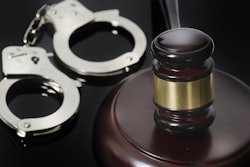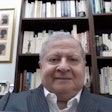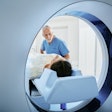The case of a senior hospital doctor who was found unconscious by a nurse after drinking gin before an on-call shift has focused attention on how increasing work pressures can lead to alcohol misuse and even addiction.
Dr. Lewis Vickers, a consultant physician and cardiologist at the University Hospital Wishaw -- 24 km south-east of Glasgow, U.K. -- was almost eight times over the legal driving limit when he was discovered lying behind the door of his office after failing to turn up for his shift, according to an article posted on 2 February by the Daily Record.
He decided to take a break after finishing his rounds at around 3 p.m. on 17 April 2023, before his scheduled on-call shift started at around 5 p.m. the same day. The Medical Practitioners Tribunal Service (MPTS) heard Vickers had found an unopened bottle of gin gifted to him by a patient and decided to "have a small drink" after feeling "very stressed, tired, and apprehensive about having to undertake further work."
He filled a water bottle with a mix of lemonade and gin, and he was found by a nurse at around 6.30 p.m., the Daily Record reported. The nurse called for assistance and reported the doctor could not stand, seemed unsteady, and his movements were slow, and he was only able to make "indecipherable" sounds in response to questions. A call was made to the emergency department crash team, and blood tests later revealed Vickers blood alcohol was 360 mg/100 ml.
Vickers told the MPTS he was "utterly ashamed of his conduct" and "beyond embarrassed and humiliated." He added: "I think about [it] every hour of every day sometimes longer than others, it's even featured in several dreams," the article said.
He has since cut his workload to manage stress better, and better recruitment of staff has meant less strain on him. The MPTS said it recognized the risks he placed patients in, but it considered his misconduct to be remediable and recognized that Vickers had made great efforts to understand his behavior and to remediate it, the Daily Record reported.
According to the MPTS, "The Tribunal considered that the risk of Dr. Vickers repeating his misconduct is low, as it was an isolated incident in the context which he is now addressing. Dr Vickers apologized on more than one occasion for his actions, both prior to and during these proceedings, indicating deep remorse. The Tribunal took account of testimonials to Dr Vickers' professional and caring work as a doctor; each author spoke very highly of him."
The tribunal concluded that his current fitness to practice is not impaired due to the misconduct and placed him on conditions of practice for 12 months.
The importance of seeking help
Dr. Philip Pasfield, a radiologist from Sydney, Australia, who in January 2024 was found guilty of driving under the influence of alcohol (see our article posted on 23 January), thinks it's vital to seek professional help at the earliest opportunity.
"I implore all doctors to have a general practitioner and see a psychiatrist for any mental health issues -- current or potential," he wrote on 28 February 2024, in response to the AuntMinnieEurope.com report. "Remember you do not have to be addicted to still have problems with substances and that journalists sensationalize all doctor behavior if it suits them."
Pasfield noted that prior to the offense, he was seeing a psychiatrist about intermittent anxiety issues, not alcohol abuse. He said that an anxiolytic (Ativan, lorazepam) had an adverse reaction and caused a "waking blackout," leading to no knowledge of alcohol consumption and a very foggy state.
"Of my own volition, I started SMART recovery online meetings, not Alcholics Anonymous," he wrote. "I continued to see a psychiatrist and attended four weeks of residential rehabilitation and aftercare. This was all very useful in avoiding a repeat of this and prior bingeing episodes. I am not a daily drinker or alcohol-dependent, but I am determined to correct the occasional offending behavior."




















